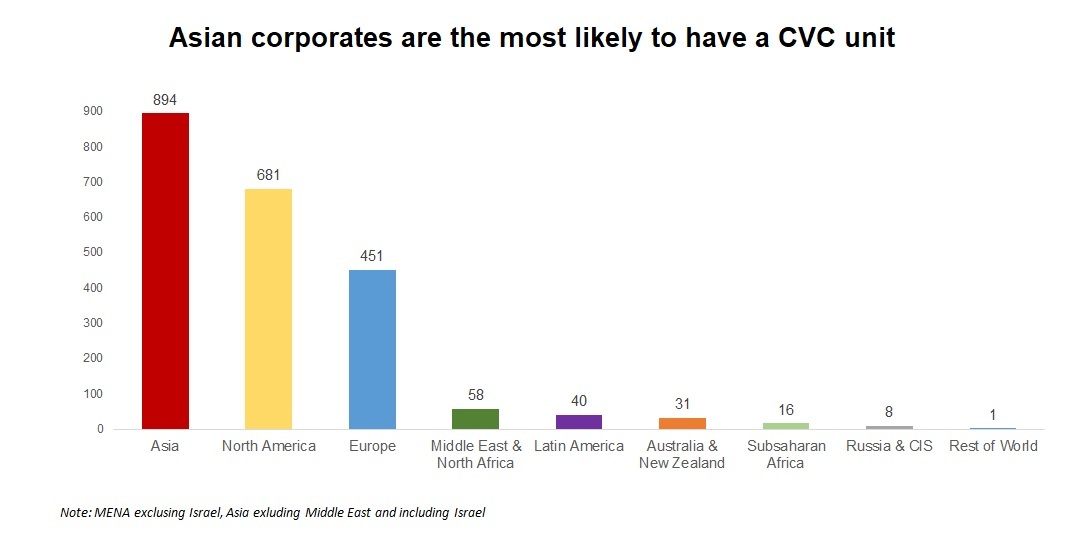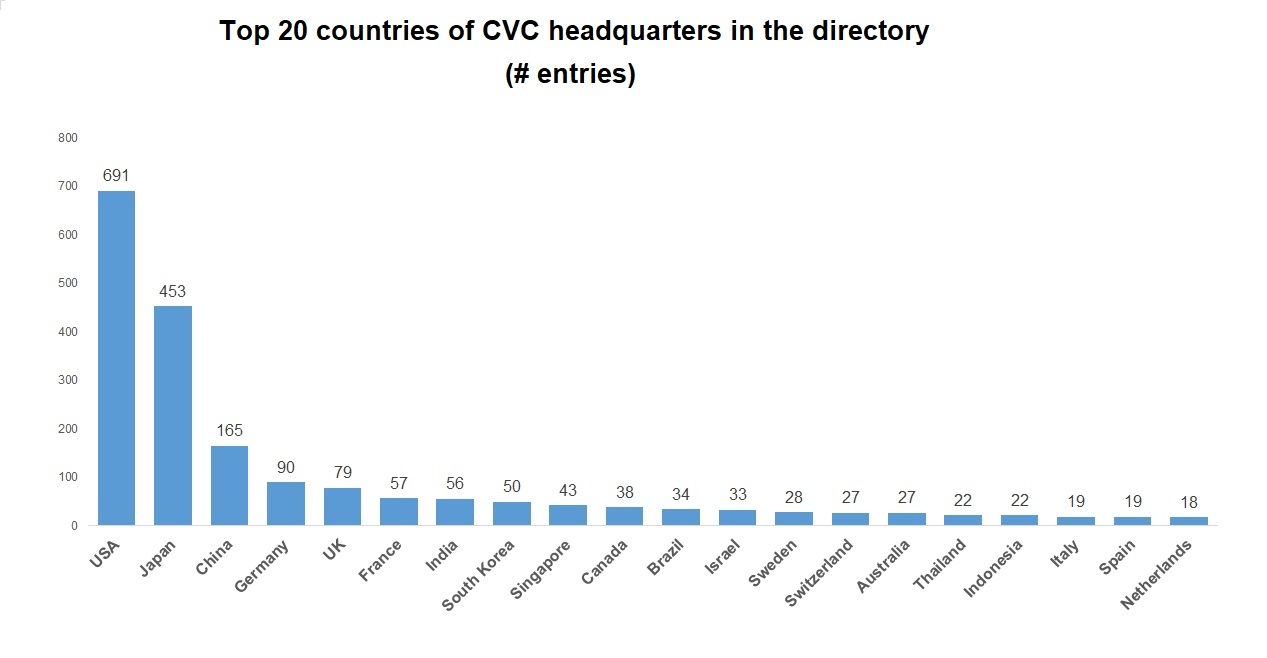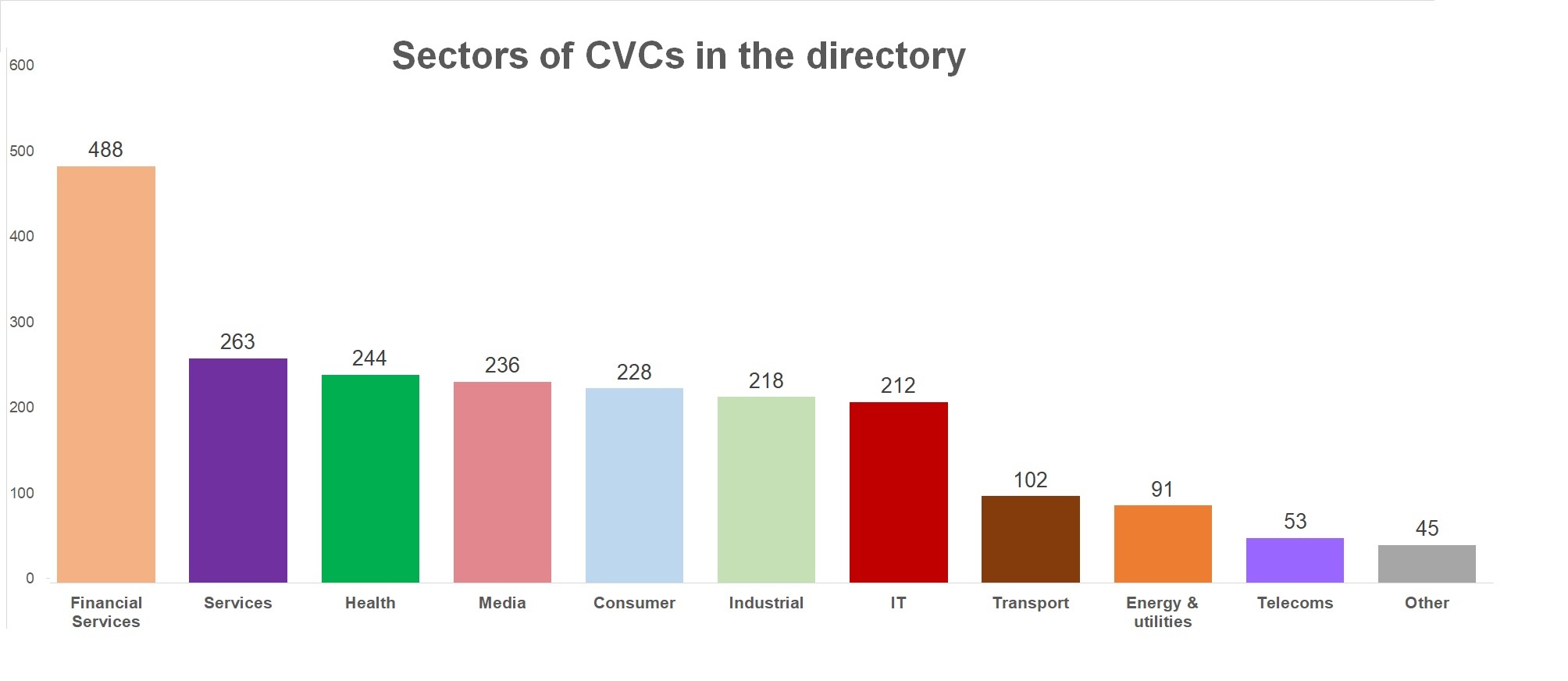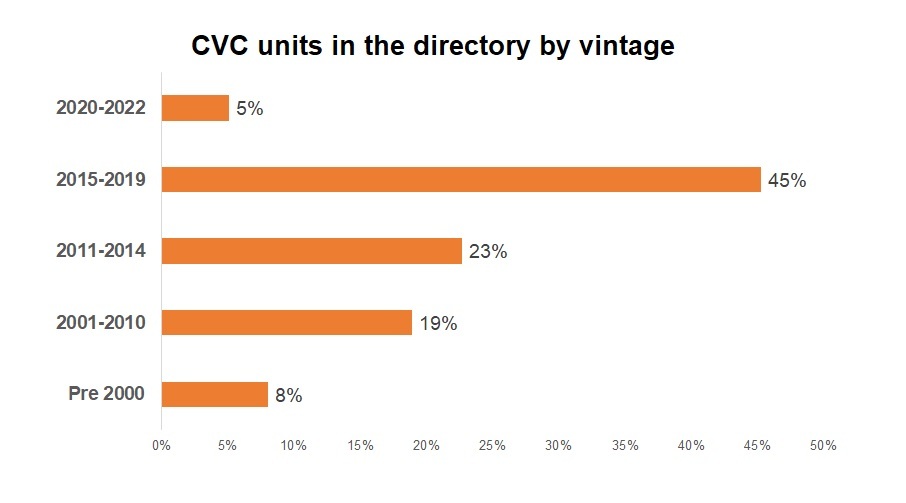Asian, fintech-focused and less than seven years old – some of the CVC trends we saw when compiling the Global Corporate Venturing Directory.
What does a typical corporate venture capital unit look like? According to what we have discovered compiling the Global Corporate Venturing directory, it is likely to be part of an Asian financial services company, based in the US and founded some time since 2015.
The directory is a project to provide detail on the more than 2,000 active corporate investment units around the world. In the first instance, it was just to shed some light on these units, which can be difficult for startups and potential co-investors to find out about.
But the list has also given us a great snapshot of the CVC landscape. These are some of the key trends.
- Asian companies are the most likely to have a CVC unit. Some 894 out of the 2180 corporate investment units in the directory belong to companies based in Asia. US corporations account for 681, followed by 451 for European companies.

- However, the corporate investment unit itself is still likely to be based in the US — most likely in Silicon Valley, where big corporations from all over the world still like to base their innovation outposts. Japan was the second most common place for a CVC unit to be based — perhaps surprising but reflecting a recent growth in the number of Japanese companies establishing investment arms, often focused mainly on the domestic startup ecosystem. Mizuho Leasing was one of the latest to create a new fund.

- Financial services companies are the most likely to have a CVC fund. This is not surprising given how many cryptocurrency companies, for example, are creating investment arms to help grow companies in their ecosystem. There was then a pretty even spread of investment units across companies in media. healthcare, services, consumer, industrial and IT. The laggard sectors, with the fewest CVC units, are transport, energy and telecoms.

- Some 50% of CVC units in our directory are less than 7 years old. The biggest grouping — some 45% — was founded between 2015 and 2019. This is consistent with what we have seen in other figures we track at GCV, where we have observed a growing number of investments coming from first-time corporate investors since 2019. Only 8% of CVCs in our directory go back beyond 2000.

The CVC directory is still in beta mode — so if you spot any errors or omissions please let us know and help improve the accuracy. Please use this form to submit any changes.

Maija Palmer
Maija Palmer is editor of Global Venturing and puts together the weekly email newsletter (sign up here for free).








